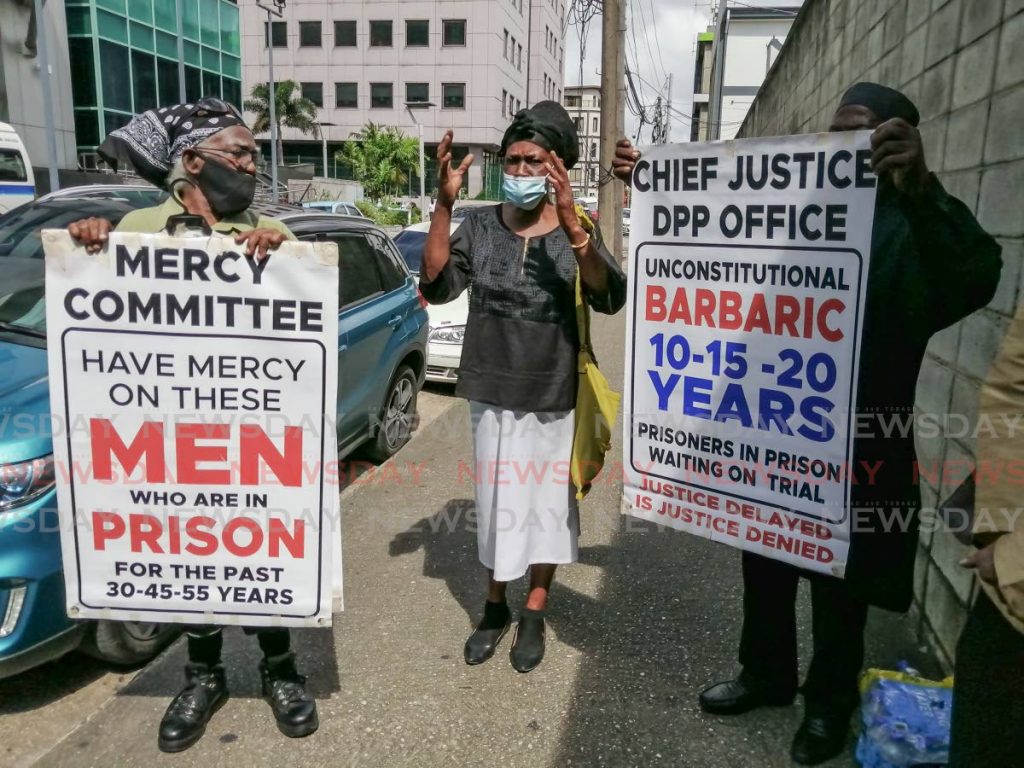Activists seek speedier trials for over 500 in jail for murder

Close to 500 people awaiting trial for murder for over ten years have been offered a glimmer of hope as the Director of Public Prosecutions has agreed to review their matters.
This came after DPP Roger Gaspard met with activists working for prison reform and a just criminal justice system.
On Wednesday, the DPP met with Nazma Muller, Dr Wayne Kublalsingh, executive director of the Caribbean Centre for Human Rights Denise Pitcher, ex-inmate Adrian Gokool and justice advocate Elizabeth Solomon.
The group has been campaigning for prison reform and speedier trials over the last seven weeks.
The DPP is the only public official who have given them a hearing. They have been seeking audiences with the Attorney General, the Minister of National Security and the Prison Commissioner without success.
The DPP is expected to get back to the group within two weeks.
Gaspard said on Friday that he was happy to have met with them.
"The meeting was wholesome and they articulated several legitimate issues. As a public office, my office is always keen to participate in any meaningful discussion as it pertains to our mandate within the criminal justice system.
"I think that all interested stakeholders should be afforded an ear. That includes civil society and members of the public. Those persons must be allowed to voice their concerns. Traditional stakeholders, even if they have some answers, do not have all the answers. In any system of participative democracy, the voice of civil society must be heard."
Speaking outside the Attorney General's office, on Richmond Street, Muller said Attorney General Faris Al-Rawi should intervene and set timeframes for judges to complete criminal trials and the Law Association should take stock of its members who she said were taking advantage of poor people seeking justice.
She referred to the lawsuit filed by the Law Faculty challenging the inhumane conditions of prisoners as one step in the journey to restore justice in the country.
Muller said at a time when countries around the world were reducing its prison populations to protect inmates from the covid19 pandemic, the opposite was taking place in Trinidad and Tobago.
She said there were prisoners awaiting trial for murder for up to 20 years, in one instance, and with the passage of time their families have been destroyed and the memories of witnesses faded.
She said she was optimistic that the DPP would look at the dossier they presented so that some of the cases will be determined. Muller called on the Attorney General to provide the necessary resources to the Office of the DPP for it to do its job effectively, as it did not have a budget of its own nor control over it.
She also said defence lawyers should make greater use of the Plea Bargaining Act, as in many cases the period spent awaiting trial was far greater than the eventual sentence imposed.
Muller also called for the use of electronic monitoring of inmates as one measure to reduce the prison population and questioned why non-violent offenders have not been released.
She said the fight for justice for prisoners was also applicable to the relatives of victims of crime, as "justice delayed is justice denied."
Muller suggested that the Judiciary doubles its complement of judges in the criminal division to reduce the backlog of cases.
Kublalsingh said the greatest single threat facing society was crime, and that cannot be fixed without fixing the criminal justice system.
He said the politicians had power to intervene and the group would continue to petition them to get the matter on the agenda.
Of all the elements of the criminal justice system, he said,the prison "is the most rotten," where inmates and officers alike face abuse and inhumane conditions.
"If we can't fix the issue of crime and the criminal justice system, we can't fix the economy, the society or the community," he said, addng that this requires the "collective responsibility" of all stakeholders.

Comments
"Activists seek speedier trials for over 500 in jail for murder"